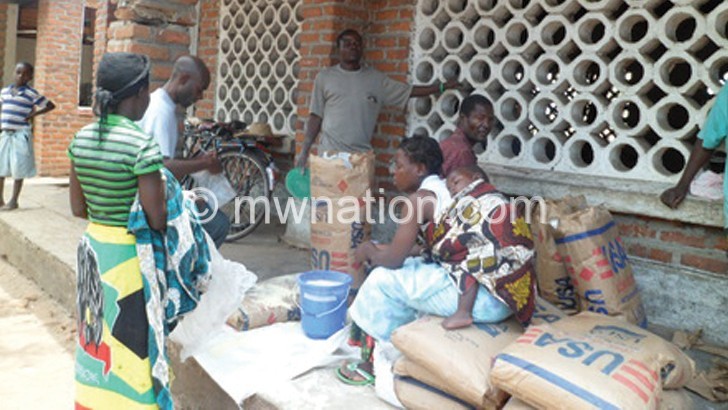‘Food insecurity looms due to Covid-19’
Covid-19 pandemic is likely to devastate livelihoods and food security in Malawi, particularly on most vulnerable people working in the informal agricultural and non-agricultural sectors, therefore threatening some sectors of the economy, a new Global Food Crises report has indicated.
The report, produced by the Global Network Against Food Crises, an international alliance working to address the root causes of extreme hunger, says the Covid-19 pandemic will contribute to perpetuation or deterioration of food insecurity in the country.

Reads the report: “The movement restrictions which are necessary to contain the spread of the virus will disrupt the transport and processing of food and other critical goods, increasing delivery times and reducing availability of even the most basic food items.”
While indicating food security levels were expected to improve with a forecast above average in 2020 harvest, the report says households dependent on food production and livestock rearing will be affected, thus deterring the economy as funds will be allocated to contain the food gap.
“The disruption in the supply chain of agricultural inputs or the inability to access livestock markets will likely lead to a decline in crop and livestock production and sales,” the report says.
“This calls for the need to scale up support for food production, transport and local food markets, and advocate for trade corridors to remain open to ensure the continuous functioning of the critical food supply chain and agri-food systems,” says the 2020 edition.
In the country, approximately 80 percent of Malawians are engaged in predominantly agriculture, food security, employment and the economy highly sensitive to Agriculture output.
Agricultural expert Tamani Nkhono-Mvula in an interview agreed that some preventive measures for Covid-19 will have some impact on the marketing and food distribution and if the problem persists for the next six months or more then production will be challenged next year.
“Government needs to ensure that the Strategic Grain Reserves have been filled with maize to avert any food gaps. The filling of grain reserves need to be done now and the Admarc [Agriculture and Development Marketing Corporation] should also ensure that its rural markets are functional so as to reduce people movement from rural areas in search for markets in town.
“The government should start devising a post-lockdown or post Covid 19 recovery plan, especially for the agriculture sector,” he said.
But Ministry of Agriculture spokesperson Priscilla Mateyu has assured farmers and the public that there will be no disruption in the agricultural supply chain hence the country may not suffer any economic shocks arising from such.
She said in an interview last Friday: “Plans have been put in place to make sure that agriculture production and the whole supply chain is not disturbed in any way.





One Comment